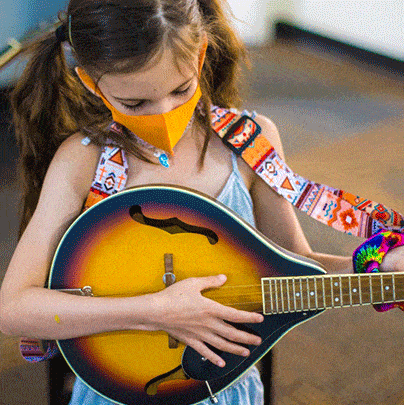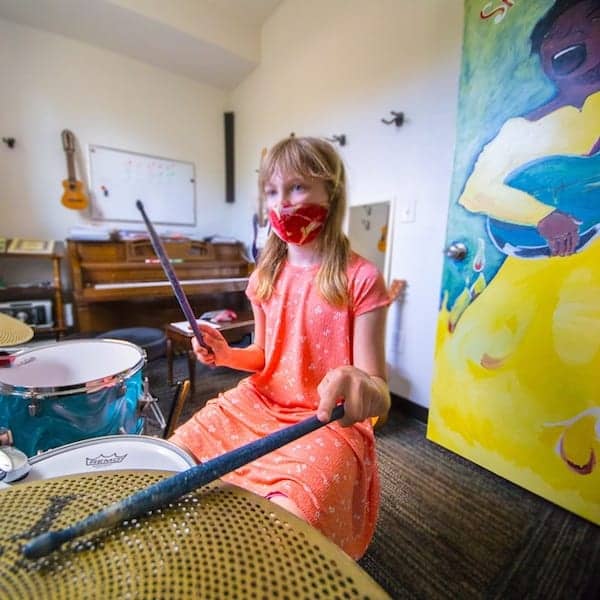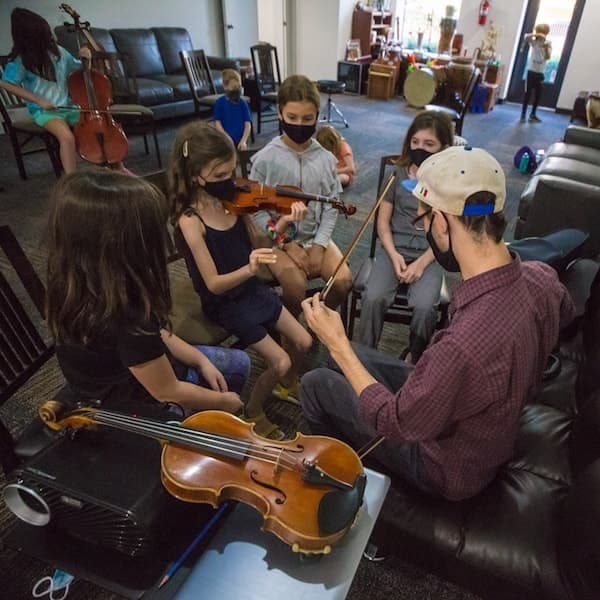From our friends at Backbeat Music Academy
This week’s Featured Camp of the Week is really unique: Backbeat Music Academy’s Try Everything music camps. In these camps, kids learn the basics of over 100 instruments from around the world. It’s kind of like the Children’s Museum, just with music.
How It Works
Each day kids get to try out a whole new group of instruments: One day it is the guitar, bass, ukulele, mandolin, charango, oud, biwa, etc. The next it would be keyboard instruments, or percussion, or bowed instruments (woodwind and brass instruments are on hold pending Covid this year, though). The kids come together for a hands-on lecture and demonstration for the instruments by professional musicians. Then they get Explore Time to try out the ones that draw their attention the most. While they’re encouraged to spend time on one of the new instruments, they can also use the Explore Time to work on one that really pulls them in. During Explore Time teachers float around answering questions, redirecting as needed and spending a little 1-1 time with these students to show them what skills they’ll need to play it better.
Of course, part of the design of the camp is that most kids don’t really know what instrument will fit them best, and by trying out different ones they get to see what works for them. Many seem too easy or too hard, but once they get their hands on it they may fall in — or out! — of love with it. But this is really just a small part of what the camp is about.
World-Building
Throughout the week, the kids learn to play the same song on all the instruments — partly as a foil to get them to understand how each instrument works, but mostly because kids learn best through pattern-matching. When they see how different instruments play the same song, they figure out the fundamentals of music theory. Even younger kids will be able to see a brand new instrument they’ve never seen before and figure out how to play a song on it just by looking at it.
There are so many weird and wacky instruments — and ‘normal’ ones they’ve never gotten to try out for themselves — that every day is full of activity. Each day brings new questions and opportunities to explore.

They think of it as World-building. Everyone has mental maps and models for how the world works, how they work. The camp seeks to help the campers construct how they understand music and music-making through exploration. After all, playing music is easy — if you know what to do. By figuring out how it works, that makes the playing obvious. Discovering that figuring things out makes them easy is also part of the hidden curriculum (although sometimes not so hidden).
Building Cultural Competence
There’s also a multicultural component as kids get exposed to instruments they’ve never seen, like the Ghanaian kora, Thai kaen or the Ukrainian bandura. Kids build their cultural competence and learn about other ways to make music. This is great for future world citizens, but also for their own autonomy as they begin to see that they can make music on their terms, for their own sake.



